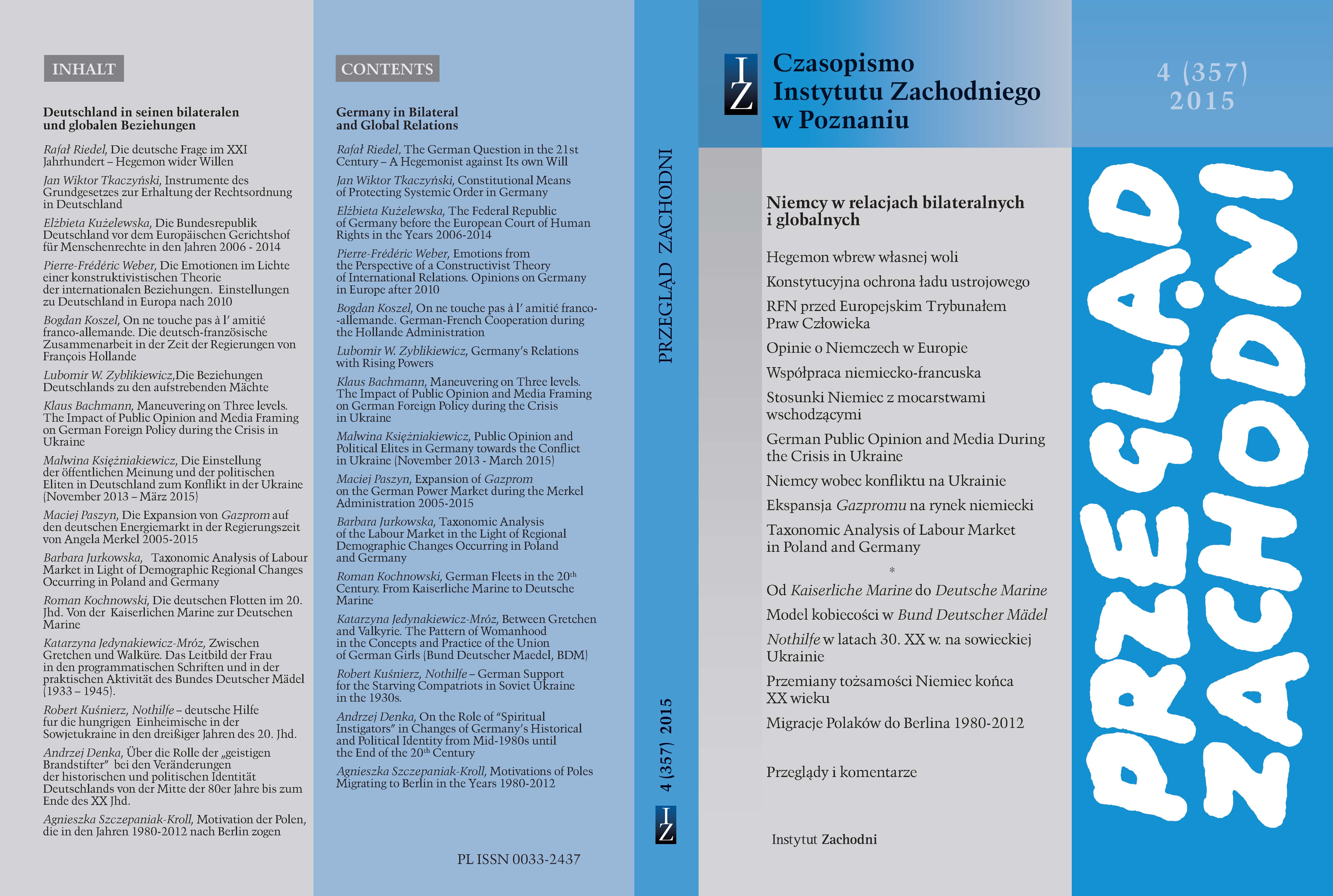Nothilfe – niemiecka pomoc głodującym rodakom w latach 30. XX w. na sowieckiej Ukrainie
Nothilfe. German Support for the Starving Compatriots in Soviet Ukraine in the 1930s.
Author(s): Robert KuśnierzSubject(s): History, Recent History (1900 till today), Interwar Period (1920 - 1939)
Published by: Instytut Zachodni im. Zygmunta Wojciechowskiego
Keywords: Nothilfe; Soviet Ukraine
Summary/Abstract: In this article I discuss the support for the starving German inhabitants of SoviIn this article I discuss the support for the starving German inhabitants of Soviet Ukraine in the 1930s by organizations from Germany. The German aid was provided both during and after the Great Famine. At the beginning, the recipients of the money were kulaks and the disenfranchised (lishentsy). With time, however, the circle of recipients of the Nothilfe gradually expanded and included not only the ordinary peasants, but even the Communists. From April 1933 to April the funds sent to Ukrainian Germans amounted to 1934 487,821 rubles in gold. Bolshevik authorities fought against German aid, regarding it as the “German fascists’ hostile activity” so they urged recipients of the aid to voluntarily renounce it. When this action failed, the Bolsheviks began to persecute the receivers of the aid. Repressions against people accepting the Nothilfe included open trials, deportations of German peasants from border areas to eastern Ukraine (1935) and then to Kazakhstan (1936) as well as some “improvement of the standard of living” in the late 1930s. All those measures ultimately extinguished the stream of the German help flowing to the USSR.et Ukraine in the 1930s by organizations from Germany. The German aid was provided both during and after the Great Famine. At the beginning, the recipients of the money were kulaks and the disenfranchised (lishentsy). With time, however, the circle of recipients of the Nothilfe gradually expanded and included not only the ordinary peasants, but even the Communists. From April 1933 to April the funds sent to Ukrainian Germans amounted to 1934 487,821 rubles in gold. Bolshevik authorities fought against German aid, regarding it as the “German fascists’ hostile activity” so they urged recipients of the aid to voluntarily renounce it. When this action failed, the Bolsheviks began to persecute the receivers of the aid. Repressions against people accepting the Nothilfe included open trials, deportations of German peasants from border areas to eastern Ukraine (1935) and then to Kazakhstan (1936) as well as some “improvement of the standard of living” in the late 1930s. All those measures ultimately extinguished the stream of the German help flowing to the USSR.
Journal: Przegląd Zachodni
- Issue Year: 357/2015
- Issue No: 04
- Page Range: 257-268
- Page Count: 12
- Language: English, Polish

